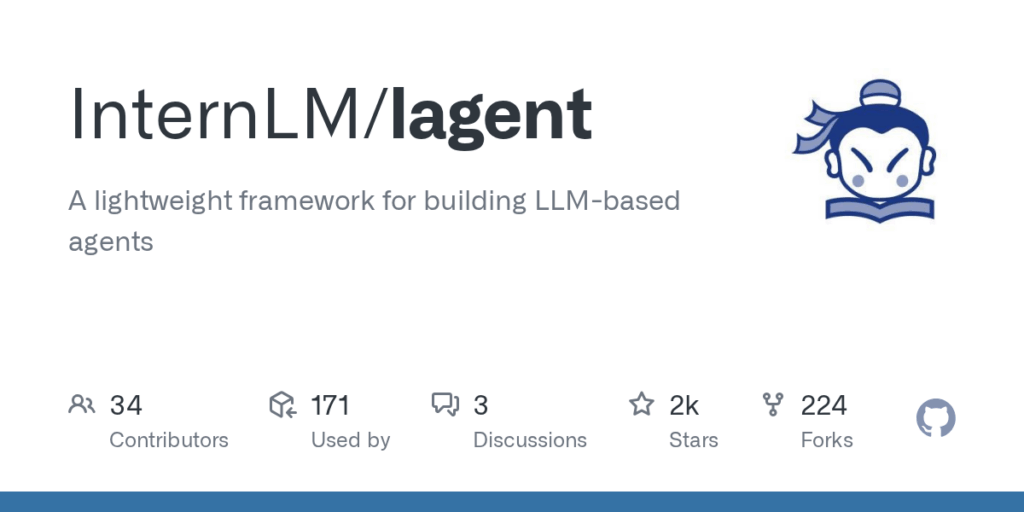lagent
Basic Information
Lagent is a lightweight open source framework for developers to build and orchestrate large language model based agents. It provides a PyTorch inspired design where agents and components behave like layers and message passing is the primary abstraction. The repository focuses on enabling construction of single agents and multi agent workflows, with built in primitives for message objects, memory management, aggregators, output formatting and tool invocation. It includes both synchronous and asynchronous variants of components to support debugging and large scale inference. The README illustrates usage patterns, examples and recommended practices such as implementing forward rather than overriding call and explicitly passing session identifiers for isolated memory and tool execution. The project is intended for researchers and engineers who want to assemble LLMs, custom aggregators and tool executors into reproducible agent pipelines.








